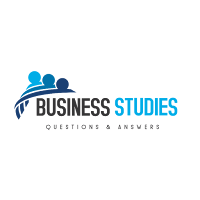GE under Jack Welch vs. Jeffrey Immelt
- Do you agree with the claim that “GE experienced a sustained competitive advantage under Jack Welch, while it experienced a sustained competitive disadvantage under Jeffrey Immelt”? Why or why not?
While the historic shareholder’s rate of return may lead to the
conclusion that GE only experienced a sustained competitive advantage during
Jack Welch’s tenure, and not during that of Jeffrey Immelt, in this particular
case it is uncertain at best. A sustained competitive advantage does not rely
on a single person. However, this is exactly what this analysis of shareholder
value creation is indicating. The sudden drop in shareholders’ returns that
coincides with the time of the change in leadership suggests that GE’s
competitive advantage left with Jack.
Still, it cannot be assumed that the only explanation for this sudden
change in shareholders’ returns is a loss in competitive advantage for the firm
resulting in the change of CEO. Investor sentiments influence their decisions,
and sometimes these sentiments lead them to act irrationally. This could
partially explain this situation, where investors, faced with the departure of
a Chief Executive as successful as Jack Welch fear that the firm will not be
able to sustain the previously achieved level of growth downgrading the value
of its stocks. Additionally, the terrorist attacks on 9/11 and a global
economic downturn occurred in 2001, just when Immelt took over as CEO.
Therefore, in this case we cannot obtain an accurate conclusion just by looking
at this metric.
2. How much of the
performance difference in the Welch versus Immelt time periods do you
believe can be directly attributed to the respective CEO? What other
factors might have played an important role in determining firm
performance? (Hint: Consider especially the time period since 2001.)
This is a much debated
topic, and students may have a variety of views on it. Some will argue that the
presence of exogenous factors that influence the metrics or even the firm’s
actual performance—such as the 9/11 attacks and the economic downturn in 2001
and economic crisis of 2008—have unfairly impacted Immelt’s tenure as CEO
relative to more favorable conditions under Welch. Other arguments may be based
on the performance that each division has and how much of it could really be
attributed to CEO actions (e.g., GE’s financials showed exceptional growth
during Welch’s tenure). It is the CEO’s job to identify and act upon exogenous
factors and promote outstanding performance in not one but all of the divisions
of a firm. Therefore, when we observe a 10-year period and all the metrics
point at good or bad performance, the CEO cannot be freed from such
responsibility, in spite of the bad or good luck involved.
3. Shareholder value creation is one of
the metrics to assess firm performance. Do you consider this metric to be
the most important one? Why or why not?
· Yes, it is an impartial and comprehensive measure.
Impartial because it is not calculated within the firm. Instead, it varies
freely with the evaluation that investors constantly make of the firm. It is
also comprehensive, because if the firm has been creating economic value and
generating accounting profits. It is also investors’ preferred metric and can
arguably be considered the ultimate goal of the firm.
· No, shareholder value is only one perspective of
performance. For example, customers would view the economic perspective as more
important, because GE must provide products and services with sufficient value
for customers to want to buy them.
4-
If you were to use a balanced-scorecard or triple-bottom-line approach to
assessing firm performance and competitive advantage, how might those
approaches change your assessment of the Welch and Immelt eras? If Jack Welch
had been more focused on broader measures of firm performance, might GE have
been better able to weather the post-2001 changes?
Under Immelt GE has placed an increased emphasis on people, planet, and
profit that recognizes that the more than 100-year-old company depends on a
sustainable business strategy. This has shifted the focus from efficiency and
6-sigma under Welch to a broader perspective of performance. Part of this is
helping to ensure customers succeed, investing in employees, lowering energy
consumption and water usage, and creating corporate positions on human rights
and conflict minerals. Combined with the external changes that have hindered
the performance of any company during Immelt’s time as CEO, addressing broader
measures of performance should provide a more positive view of Immelt’s tenure.
It is difficult to answer whether GE would have been better prepared to
weather post-2001 changes if it had used broader measures of performance. The
impact of the terrorist attacks and economic challenges were rare and hard to
predict based on past information. If GE under Welch had looked at broader
criteria, it is difficult to anticipate that prior to these events GE would
have made appropriate decisions in adapting to them.
